Small rooms, novice doctors, many people, mostly bad facilities. Definitely, someone should remove the license.
About MeadowWood Behavioral Health Hospital
If you’re not sure if this is the right place for you, they offer free assessments 24/7 so you can find out. If it’s not the right fit, they will even refer you to someplace else.
MeadowWood has teen, adult and senior residential programs so whatever your age, there’s a track for you. If you have a two or more diagnosis, that’s fine, too.
People from all over Northern Delaware, Eastern Maryland and Southwestern New Jersey come to MeadowWood for treatment.
The residential program gives you care and support around the clock in a comfortable, safe space. You’ll have both individual and group therapy as well as classes. There’s also an indoor basketball gym for rec time.
MeadowWood takes all major insurance plans such as Blue Cross Blue Shield, United, Cigna, Aetna and Magellan. You can also pay out of pocket if you don’t have insurance.
Facility Overview
Latest Reviews
Rehab Score
Gallery
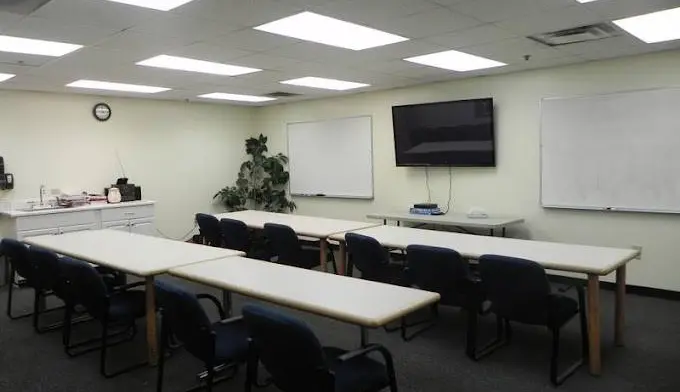
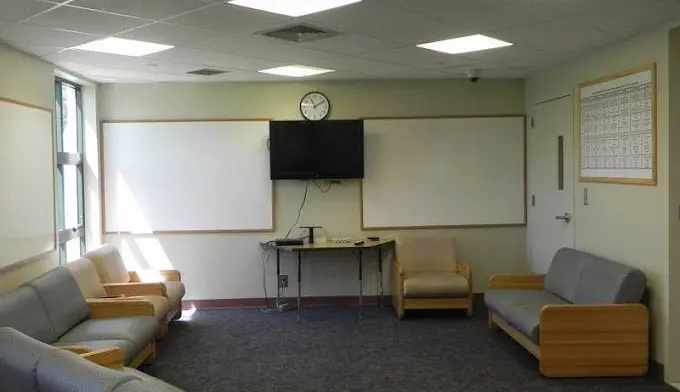
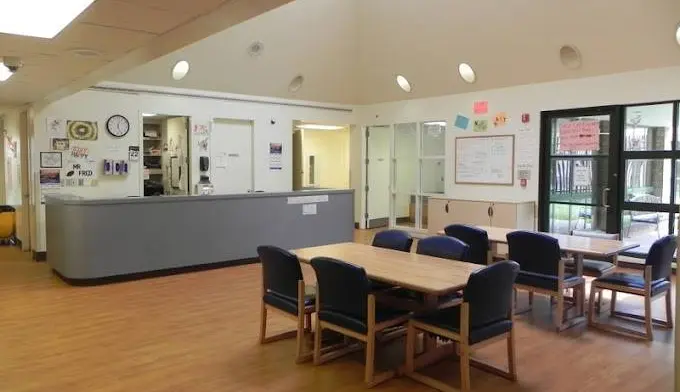


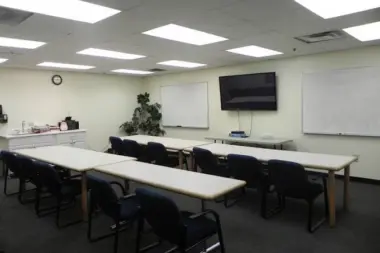
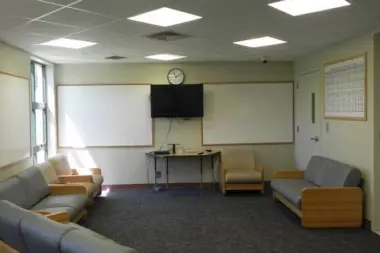
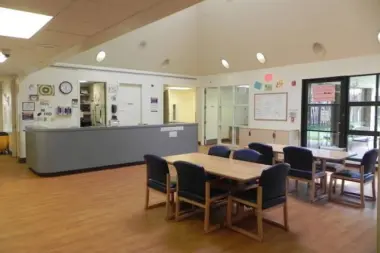
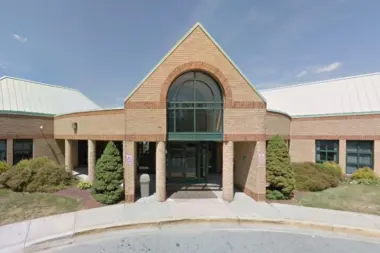

Accepted Insurance
Other Forms of Payment
Private insurance refers to any kind of healthcare coverage that isn't from the state or federal government. This includes individual and family plans offered by an employer or purchased from the Insurance Marketplace. Every plan will have different requirements and out of pocket costs so be sure to get the full details before you start treatment.
Self-pay involves paying for treatment out of your own pocket. You can use savings or credit, get a personal loan, or receive help from family and friends to fund your treatment. If you don't have insurance or your insurance plan doesn't cover a specific program, self-pay can help ensure you still get the care you need.
Medicare is a federal program that provides health insurance for those 65 and older. It also serves people under 65 with chronic and disabling health challenges. To use Medicare for addiction treatment you need to find a program that accepts Medicare and is in network with your plan. Out of pocket costs and preauthorization requirements vary, so always check with your provider.
Military members, veterans, and eligible dependents have access to specific insurance programs that help them get the care they need. TRICARE and VA insurance can help you access low cost or no cost addiction and mental health treatment. Programs that accept military insurance often have targeted treatment focused on the unique challenges military members, veterans, and their families face.
Medicaid is a state based program that helps lower-income individuals and families pay for healthcare. Medicaid covers addiction treatment so those enrolled can use their coverage to pay for rehab. When a program accepts Medicaid the client often pays very little or nothing out of their own pocket.
Private insurance refers to any kind of healthcare coverage that isn't from the state or federal government. This includes individual and family plans offered by an employer or purchased from the Insurance Marketplace. Every plan will have different requirements and out of pocket costs so be sure to get the full details before you start treatment.
Addiction Treatments
Levels of Care
Inpatient rehabs offer the structure and support that clients exiting detox, those in early recovery, and those in crisis often need. They provide housing and meals, enable clients to escape home and workplace stressors and focus solely on recovery. Clients engage in intensive psychotherapy, which may include group and family counseling. Inpatient treatment is also designed to prepare clients for outpatient care, which typically involves recovery-focused life skills training. Holistic therapies are widely available.
Clients may enroll in an intensive outpatient program (IOP) immediately following detox or after completing inpatient treatment. IOP programs involve a step-down approach in which treatment frequency and intensity gradually decrease until the client is stable enough to enter standard outpatient (OP) care. Most intensive outpatient programs offer a minimum of nine and a maximum of 20 treatment hours. Therapeutic modalities typically include medication assisted treatment (MAT), psychotherapy, recovery skills training, and complementary care.
A partial hospitalization program (PHP) is a short-term form of intensive rehab, usually for those with acute symptoms that are hard to manage but don't require 24-hour care. Their partial hospitalization program is designed for adolescents, adults and senior adults. The PHP include group therapy, individual therapy, family therapy, medication management and more.
12-step programs are addiction recovery models based on Alcoholics Anonymous (AA). A number of substance abuse programs (including some drug and alcohol rehab centers) use the 12 steps as a basis for treatment. Beginning steps involve admitting powerlessness over the addiction and creating a spiritual basis for recovery. Middle steps including making direct amends to those who've been hurt by the addiction, and the final step is to assist others in addiction recovery in the same way. 12-Step offshoots including Narcotics Anonymous (NA), Cocaine Anonymous (CA), Dual Recovery Anonymous (DRA), Sex and Love Addicts Anonymous (SLAA) and Gamblers Anonymous (GA).
Round-the-clock medical care is provided during medically supervised detox. This 24-hour clinical care in Delaware serves three main purposes. First, medical staff provide treatment to curb the effects of withdrawal, which range from uncomfortable to life-threatening. Second, the detox process minimizes substance dependence by clearing the body of addictive substances. Third, this supervised process prepares the individual for further rehab treatment.
Since quitting your drug of choice cold turkey can be uncomfortable (and even dangerous), a medically assisted detox is typically suggested. It takes place in an inpatient setting, where clinical staff can monitor your vitals, provide medications if necessary, and keep you as safe and comfortable as possible throughout the process.
Treatments
Many of those suffering from addiction also suffer from mental or emotional illnesses like schizophrenia, bipolar disorder, depression, or anxiety disorders. Rehab and other substance abuse facilities treating those with a dual diagnosis or co-occurring disorder administer psychiatric treatment to address the person's mental health issue in addition to drug and alcohol rehabilitation.
Mental health rehabs focus on helping individuals recover from mental illnesses like bipolar disorder, clinical depression, anxiety disorders, schizophrenia, and more. Mental health professionals at these facilities are trained to understand and treat mental health issues, both in individual and group settings.
Alcoholism, also known as alcohol use disorder (AUD), is a pattern of experiencing difficulty controlling alcohol consumption and a failure to stop drinking even when it causes problems. Treatment for this addiction is typically customized for each person, but generally follows a three-step process. Alcohol rehab in Delaware begins with supervised detox, followed rehabilitation, then maintenance.
Recovery is possible for those who complete drug rehab in Delaware. These programs specialize in providing an environment that encourages sobriety and a professional staff that provides the tools to overcome addiction. Participants receive a customized treatment plan tailored to their needs.
Delaware drug and alcohol rehabs can help you overcome substance abuse and addiction. These programs address the root cause of your addiction and help you to develop healthier coping strategies through a range of evidence-based therapies and counseling. Programs are typically offered on an outpatient, inpatient, and partial hospitalization basis. You may also access recovery support meetings, family counseling, and skill development classes, all of which will help you sustain your sobriety.
Programs
Recovery is most successful when clients feel accepted and validated by their peers and treatment providers. Facilities that offer LGBTQ-inclusive programming are committed to creating a safe space where everyone can grow and recover without fear of judgment or discrimination. They will have dedicated policies in place to create a safe and supportive environment that fosters free expression.
Serving in the military is both mentally and physically challenging, and can result in trauma that persists even after combat ends. Military programs are tailored to the specific and often complex needs of active duty personnel, veterans, and military families. Clients often access these programs through the U.S. Department of Veterans Affairs (VA).
Adult rehab programs include therapies tailored to each client's specific needs, goals, and recovery progress. They are tailored to the specific challenges adult clients may face, including family and work pressures and commitments. From inpatient and residential treatment to various levels of outpatient services, there are many options available. Some facilities also help adults work through co-occurring conditions, like anxiety, that can accompany addiction.
Young adulthood can be an exciting, yet difficult, time of transition. Individuals in their late teens to mid-20s face unique stressors related to school, jobs, families, and social circles, which can lead to a rise in substance use. Rehab centers with dedicated young adult programs will include activities and amenities that cater to this age group, with an emphasis on specialized counseling, peer socialization, and ongoing aftercare.
Teen programs are designed to address the unique pressures teens face, pressures that can drive them to experiment with dangerous, addictive substances. They need programs that meet them exactly where they are and give them tools for long-term recovery. Therapy can help teenagers understand and work through underlying issues so they can reclaim the life ahead of them.
Nearly one million adults age 65 and older live with a substance use disorder. Treatment providers who specialize in senior care understand the social, psychological, and physical effects of aging and how they relate to recovery. They can help clients address particular challenges and risks they may face as they get older such as overdosing and medication interactions and dependencies.
Clinical Services
Cognitive Behavioral Therapy (CBT) is a therapy modality that focuses on the relationship between one's thoughts, feelings, and behaviors. It is used to establish and allow for healthy responses to thoughts and feelings (instead of unhealthy responses, like using drugs or alcohol). CBT has been proven effective for recovering addicts of all kinds, and is used to strengthen a patient's own self-awareness and ability to self-regulate. CBT allows individuals to monitor their own emotional state, become more adept at communicating with others, and manage stress without needing to engage in substance abuse.
Therapists who apply dialectical behavior therapy methods help their clients understand and accept their emotions and behaviors while also seeking to change negative behaviors. This form of treatment occurs in weekly individual and group sessions and typically lasts six to 12 months.
Research clearly demonstrates that recovery is far more successful and sustainable when loved ones like family members participate in rehab and substance abuse treatment. Genetic factors may be at play when it comes to drug and alcohol addiction, as well as mental health issues. Family dynamics often play a critical role in addiction triggers, and if properly educated, family members can be a strong source of support when it comes to rehabilitation.
In individual therapy, a patient meets one-on-one with a trained psychologist or counselor. Therapy is a pivotal part of effective substance abuse treatment, as it often covers root causes of addiction, including challenges faced by the patient in their social, family, and work/school life.
Group therapy helps build a sense of community in participating men and women. You share experiences and your goals, which helps create strong bonds that support each person's path to recovery. These bonds often lead to long term supportive relationships as you transition into the community.
Amenities
-
Private Setting
Staff & Accreditations
Staff

Jennifer Shalk
CEO
Accreditations

The Joint Commission, formerly known as JCAHO, is a nonprofit organization that accredits rehab organizations and programs. Founded in 1951, the Joint Commision's mission is to improve the quality of patient care and demonstrating the quality of patient care.
Joint Commission Accreditation: Yes
Accreditation Number: 1428
Contact Information
575 South Dupont Highway
New Castle, DE 19720





